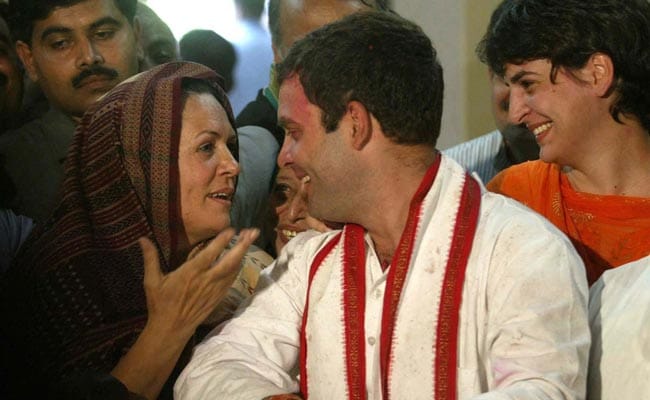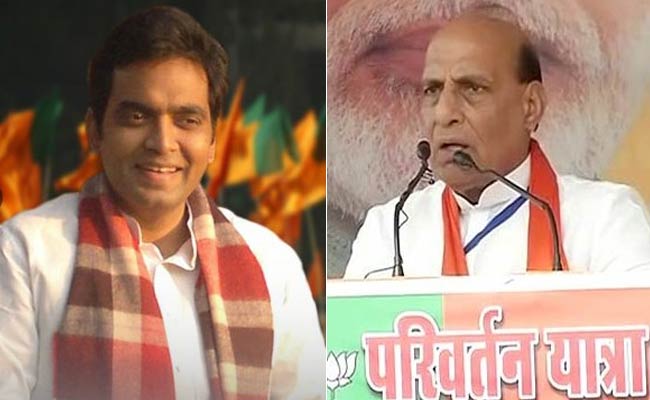Ironically some - though not all - of the journalists making these points are themselves the children of former journalists or from privileged backgrounds and may have owed their initial entry into the profession to "Daddy's contacts". This is not an ideal world, but it is a real one.
To grow up as a politician's child can cosset you from many hardships, but it can also be gruelling and deprive you of all notions of privacy. It also serves to expose you to politics in its most exciting as well as its rawest forms from a tender age. It makes the child choose either a dramatically different profession - as a complete counter-reaction - or inevitably draws him or her into politics.

Congress president Sonia Gandhi with her son and the party's vice president, Rahul, and daughter Priyanka Gandhi Vadra (File photo)
Of course, how successful a second-generation cricketer or a third-generation doctor is depends on his or her achievements, not family pedigree. When you are into your second season of first-class cricket or actually practising in a law court, people - selectors for a team, clients seeking legal opinion - will come to you because of the merit you show and the career you have built. Not because of your surname.
I had a similar experience in quizzing. I got my first break with the Maggi Quiz all those years ago because of my surname and because I was my father's son. The second contract, and all subsequent contracts, came because my clients and quiz organisers or sponsors felt I brought value to the project. My father's accomplishments were secondary at that stage (though he remained a pillar of support for me).
It is the same with politics. Literally thousands of sons and daughters of politicians have chosen to enter public life and contest elections. This is happening in the five state elections that are coming up, for which major parties such as the BJP, the Samajwadi Party, the Akali Dal and the Congress have given nominations to family members of some well-known political figures.

Pankaj Singh (Left), the son of Union Home Minister Rajnath Singh (Right), is the BJP candidate for Noida in the UP elections
Yet, should one deny a person, a young and deserving - or young and winnable - aspirant, the chance to contest an election simply because somebody senior in his family had also been or is also in politics? What if the person has worked hard to cultivate his would-be voters and is genuinely interested in a political career? Why should such a young politician be discriminated against?
Take the example of cinema. The Mumbai film industry - like its counterparts in Kolkata, Chennai and Hyderabad - is full of families and dynasties. Your surname may give you a head-start but it does not guarantee lasting success. Neither does it insulate you against competition from a talented, determined and go-getting outsider. Bobby Deol and Shah Rukh Khan are about the same age and started their acting careers in the early 1990s. Look at them now.
Bobby was the son of the great Dharmendra, launched by his father himself. Shah Rukh came with experience from the theatre in Delhi but no family certificates. Bobby's first film was easier to get, but sustained glory went to the better man, the better actor and the better star. Nevertheless, should Bobby Deol have been ostracised and banned from cinema only because his father and brother were well-known actors?
One needs to be more understanding of the motivations of as well as pressures on a young person from a political family who enters politics or seeks a career in electoral life. The reasons are not always negative. Psychology, ambience and inclination may also be at work there. And in the end, it is all in the hands of the political market - the voters - to decide whether the product sells or fails.
Derek O'Brien is leader, parliamentary party Trinamool Congress (RS), and Chief National spokesperson of the party.
Disclaimer: The opinions expressed within this article are the personal opinions of the author. The facts and opinions appearing in the article do not reflect the views of NDTV and NDTV does not assume any responsibility or liability for the same.


